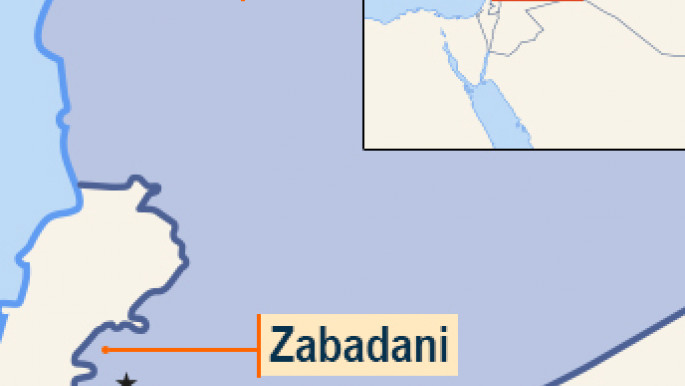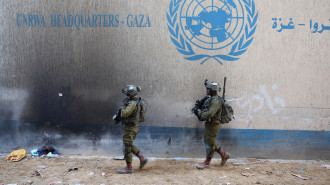Local ceasefires will not end Syria's war
Armed Syrian fighters this week withdrew peacefully from the Waer district of Homs city.
It offered a glimmer of hope and sign of compromise amid an unrelenting battle between two unrelenting sides.
Syrian rebels and activists who control Waer agreed to a three-part UN-sponsored peace deal with the regime, which would bring peace to the last rebel stronghold in Homs city.
End of siege
Civilians had suffered terribly from a three-year siege of the neighbourhood.
Fighters, rifles in their hands, boarded buses with their families and other civilians, and travelled through regime-held neighbourhoods to the rebel stronghold of Idlib province.
For the remaining residents, some semblance of peace was restored as the Syrian army's artillery fell eerily dormant.
There have been countless broken ceasefires during the four-year war, and numerous peace talks that have never got past the planning stages. To many, what happened in Homs appeared almost miraculous.
|
|
Now with peace talks planned for 1 January, the Waer agreement looked like a good omen and an example for both parties to follow - and maybe spread across the rest of Syria.
However, analysts said what happened in the besieiged and surrounded rebel neighbourhood would be unlikely to be replicated elsewhere.
"It seems to me those ceasefires are about surrendering on regime terms after drawn out sieges," said Aymenn al-Tamimi, a writer on Syrian affairs. "Waer is not a model of reconciliation, I would say. It was a three-year siege in Waer: pretty dire stuff."
With little or no food and medicine entering the neighbourhood and shells crashing down daily, rebels had little option but to make peace on the regime's terms.
However, Damascus had to concede on some points to retain full control of the city. The rebels were also willing to walk away to save the civilian population from further suffering in what must obviously have been a lost fight.
"Regaining total control over Homs means the regime probably thinks it has better chances of survival regarding acceptance of its status in any potential negotiations," said Tamimi.
Reconciliation?
Waer was portrayed by regime supporters as a victory for the central government, while officials were more careful to portray the deal as an act of "reconciliation".
Syrian state news described the rebel fighters as "gunmen" rather than "terrorists", in a marked departure from its usual rhetoric.
"There are some promising starts, and as I've said in the past, it's parallel to the work on local reconciliation agreements in other cities, not just Homs," said Reconciliation Minister Ali Haider.
It was clear that after breaking countless previous "local ceasefires", the regime only made the Homs deal work because they were dictating from a position of power.
Although rebel-held Zabadani - a Sunni-majority city close to Lebanon - is still under siege by pro-Damascus militias, it is at least now free from shelling and barrel bombs.
 |
Similarly, two surrounded pro-regime Shia villages in Idlib province are experiencing a similar break from shelling.
"It was a question of rebel resilience: despite the whole array of auxiliaries, Zabadani could not be taken," said Tamimi.
If the regime was successful in capturing the Sunni-majority town or the rebels took Fua and Kafariya in Idlib, Tamimi said that "large-scale sectarian massacres" would be inevitable.
"There was a threat of the fall of Fua, and Kafariya was of huge concern to Iran in particular, which is vested in an image as protector of Shia."
Iran - which had strong links with the foreign militias operating in Zabadani - reportedly managed to strike a deal with the rebels, which seems to be holding.
However, a prospective peace deal between the opposition and the regime looks like a very distant prospect.
"I think the regime itself is still stuck to its approach of trying to negotiate any ceasefires as virtual surrenders on its own terms. This is the standard of low expectations for negotiations." said Tamimi.
"I think the end effect is that the Homs deal is likely to reinforce rebel suspicions in particular of regime intentions on negotitions."
Follow Paul McLoughlin on Twitter: @pmcloughlin9
![Palestinians mourned the victims of an Israeli strike on Deir al-Balah [Getty]](/sites/default/files/styles/image_684x385/public/2024-11/GettyImages-2182362043.jpg?h=199d8c1f&itok=xSHZFbmc)


![The law could be enforced against teachers without prior notice [Getty]](/sites/default/files/styles/image_684x385/public/2178740715.jpeg?h=a5f2f23a&itok=hnqrCS4x)
 Follow the Middle East's top stories in English at The New Arab on Google News
Follow the Middle East's top stories in English at The New Arab on Google News


